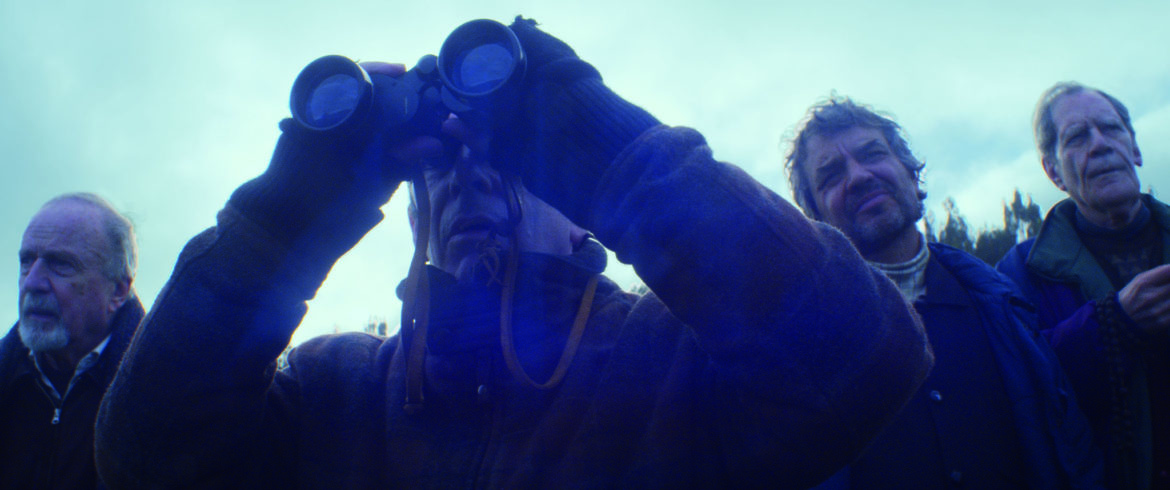The question is to what extent does the Catholic Church cover up these crimes and indeed what happens in this country?
The Club (El Club) is a 2015 Chilean drama film directed, co-produced and co-written by Pablo Larraín. The film was Golden Globe nominated and has a controversial release date of Easter Good Friday on 25 March 2016.
The film centres on child sex abuse in the Catholic Church and the previously undiscovered idea of what happens to Catholic Priests and Nuns when they’ve committed a crime. In this film they are banished to a house away from the public eye. The question is to what extent does the Catholic Church cover up these crimes and indeed what happens in this country?
SYNOPSIS
Four men live together in a secluded house in a small, seaside town. Each of them has been sent to this place to purge sins from the past. They live according to a strict regime under the watc hful eye of a female caretaker w hen the fragile stability of their routine is disrupted by the arrival of a fifth man , a newly – disgraced companion bringing with hi m the past they thought they had left behind.
Pablo Larraín (Chile 1976) is a founding partner of Fabula, a production company dedicated to film, television, advertising and production services. In 2005, he directed his first film, ‘Fuga’. In 2007, he directed ‘Tony Manero’, which premiered at the Directors’ Fortnight of the 2008 Cannes Film Festival. ‘Post Mortem’ was his third film. It premiered in Official Competition at the Venice Film Festival in September of 2010. In 2010, he directed ‘Prófugos’, HBO’s first ever series produced in Chile. The following year, Pablo Larraín directed the film ‘NO‘, which premiered at the Directors’ Fortnight of the 2012 Cannes Film Festival and was nominated for an Academy Award for Best Foreign Language Film. ‘The Club’, his fifth feature – length film.
As an actor and screenwriter, Alfredo Castro Gómez has worked in several films with Pablo Larraín. This is the third work together after, Fuga, Tony Manero and Post Mortem. He works as a theatre director, actor, pedagogue, playwright, and founder of Teatro La Memoria, a theatre company that marks a milestone in the history of contemporary Chilean theatre.
A CHAT WITH PABLO LARRAÍN
Where d id the idea for this film come from? I’ve always been disturbed by the fates of those priests who have been removed from their positions by the church itself, under comple tely secretive circumstances and detached from public opinion. I was raised in Catholic schools and met plenty of respectable priests who worked and lived based on what they call “the path to sanctity”, that is, priests who watched over the word of God beh aving much like a spiritual guide, honest men who preached through their own examples. I also met priests who today are in prison, or are undergoing legal procedur es for different kinds of offences, b ut I also met priests who have disappeared, and no one knows where they are . This is, priests who are lost, men of faith and spiritual leaders who are no longer on the radar. Priests who were taken to retirement houses in complete silence. Where are those priests? How do they live? Who are they? What do they d o? This film is about those exiled priests, and for that reason, this film is the lost priests’ club.
What sort of investigation did you carry out in order to make the film? Because the film is about the operations that the Catholic Church carries out in a secretive, silent way, the materials we obtained through investigation had to be collected through unusual methods, since the internet or any other classic methods were rendered useless. So we had to interview former clergy members, former priests or rel igious operators who gave us clues about these retirement homes for priests with “problems”, and carefully investigate the reasons for which a priest is sent to a life of retirement and penance. We also discovered that there’s an international congregation , founded in the United States, called the Servants of the Paraclete, who for the last 60 years have dedicated themselves exclusively to caring for priests who can no longer continue to serve as such for different reasons, in spite of the fact that most of these priests have committed crimes.
How would you define the experience of working with the cast? I had the privilege of counting on a group of extraordinary actors; a ctors whom I have admired all my life, and most of whom I’ve worked with before. In almost every case, the screenplay we wrote together with Daniel and Guillermo was written with these actors in mind, which allowed us to create very precise, dangerous, and extraordinarily mysterious characters.
Music plays an important role within the film. What was the selection process like? I’ve been an obsessive fanatic of classical music since my childhood, e specially of music composed during the 20th century, and when I saw the images that we were creating, I felt that it was a great opportunity to include composers that have been, undeniably, the true artists responsible for what is understood as “motion pic ture music” today, without ever having worked with the thought of creating such a thing. For this reason, when we began adding music to the film, I had the privilege of using melodies with great expressive power, melodies that detonate strange emotions and shoot the images to unknown places. At the same time, I also had the possibility of collaborating with Carlos Cabezas, an extraordinary Chilean musician, with whom I’ve collaborated with before ( NO ) and who created some original pieces for the film.
Review coming soon at Brit Es Magazine!
#LatinBritEs #TheClubFilm @elclubpelicula
——————————
theclubfilm.co.uk
facebook.com/TheClubFilm

